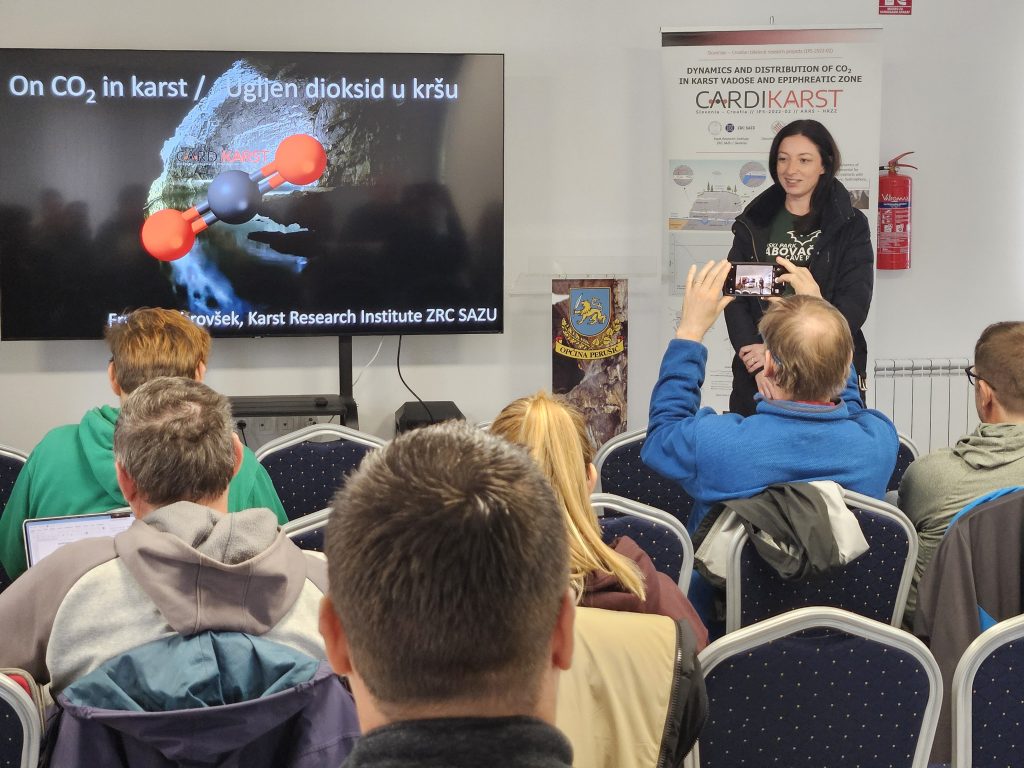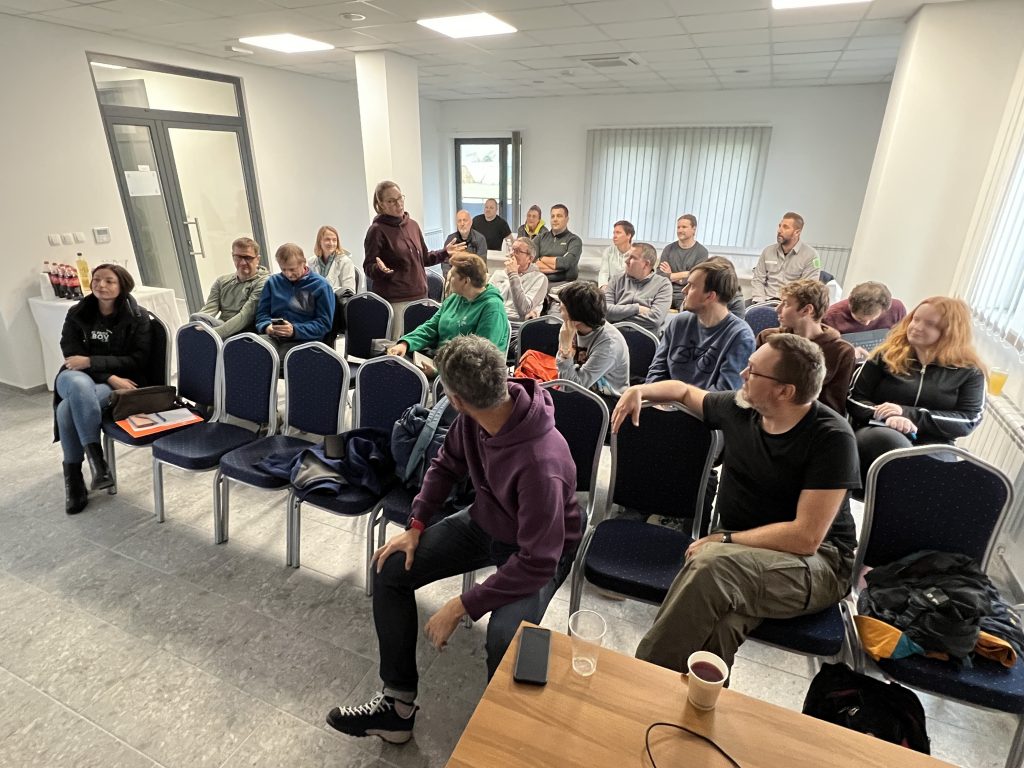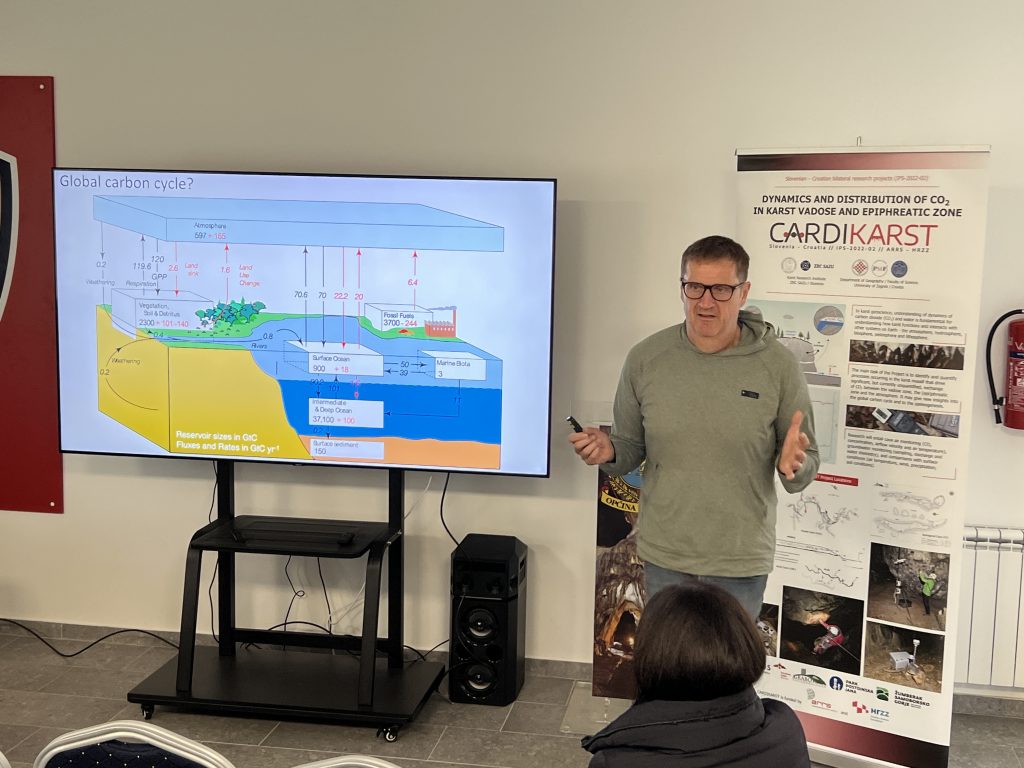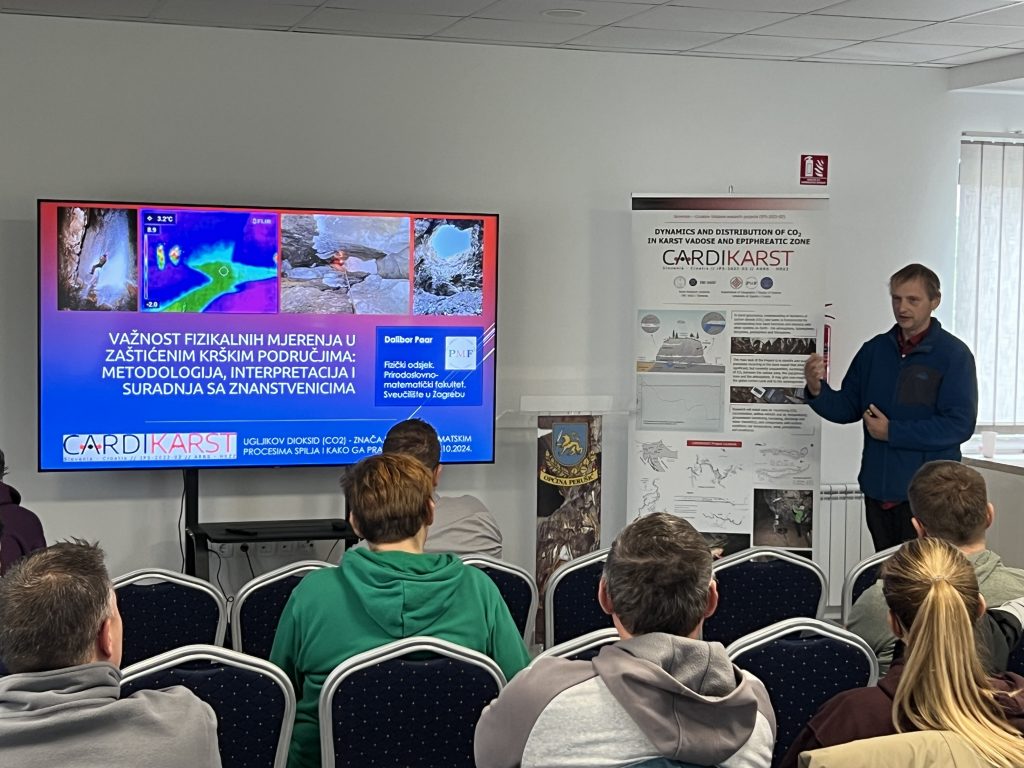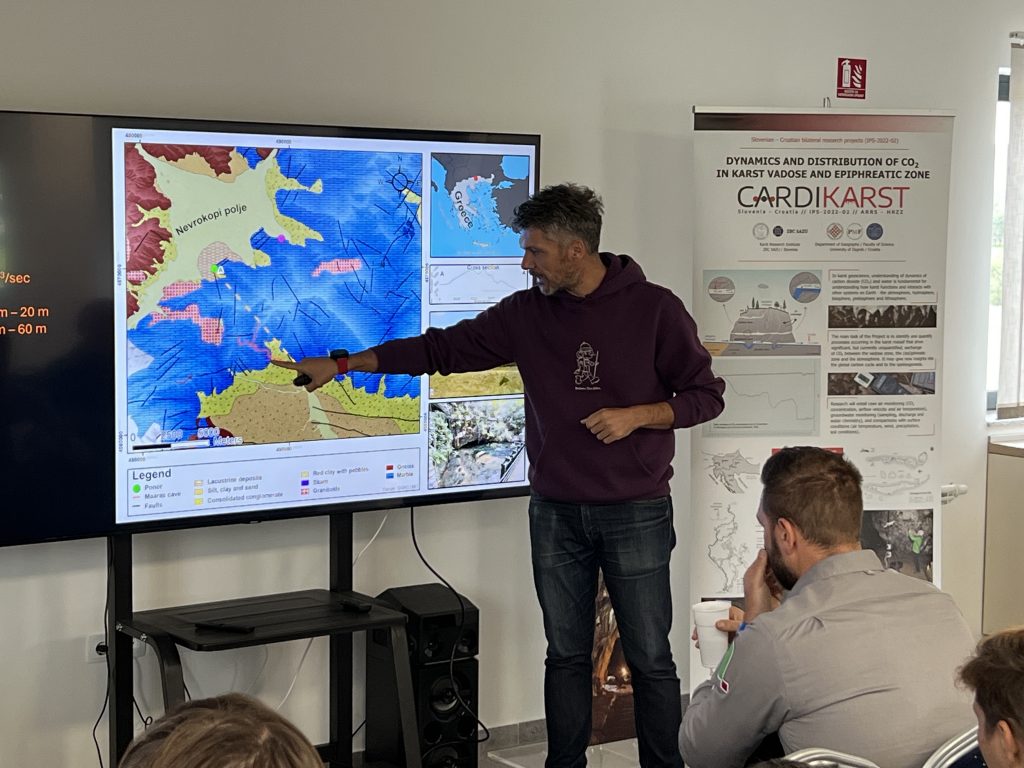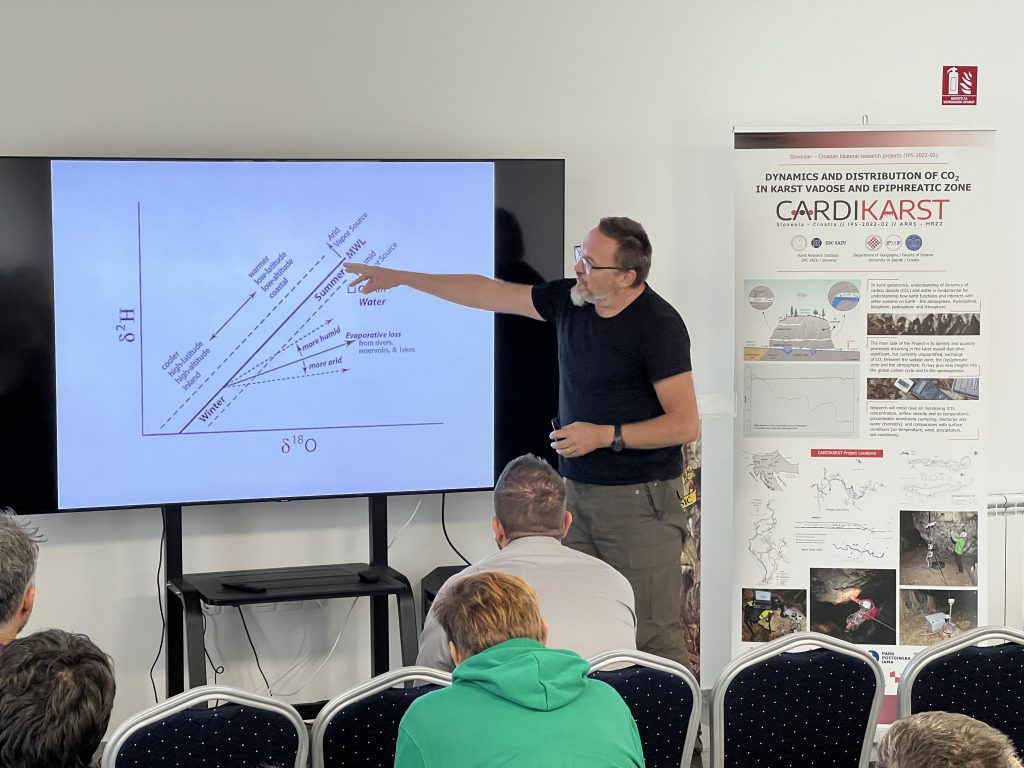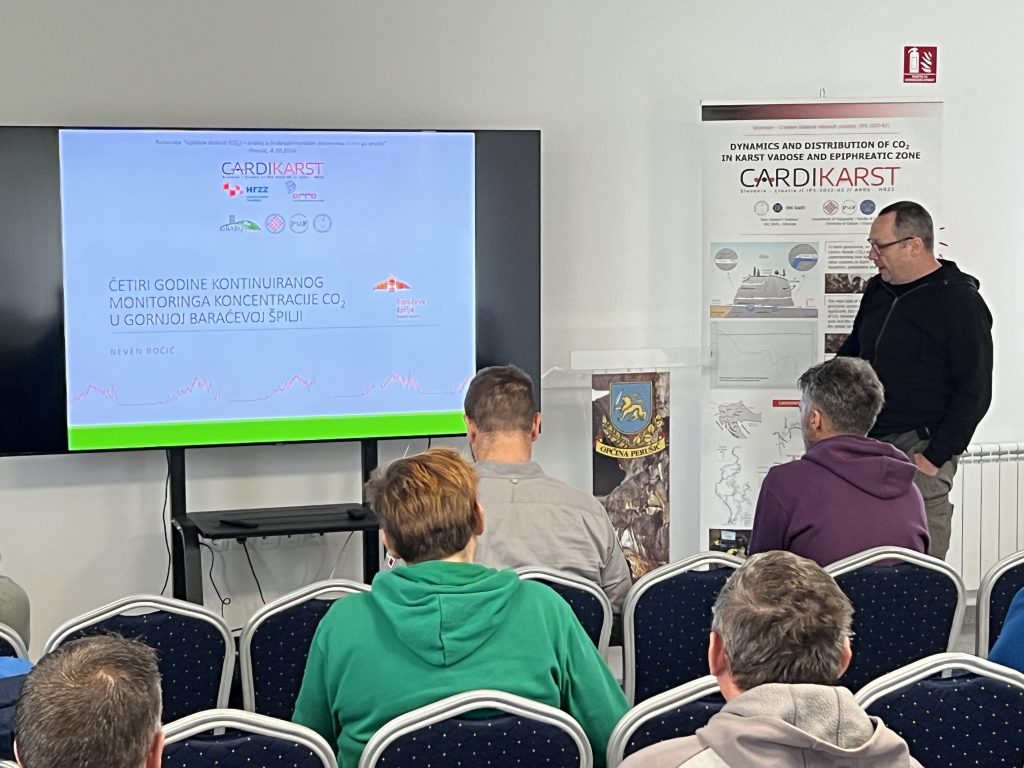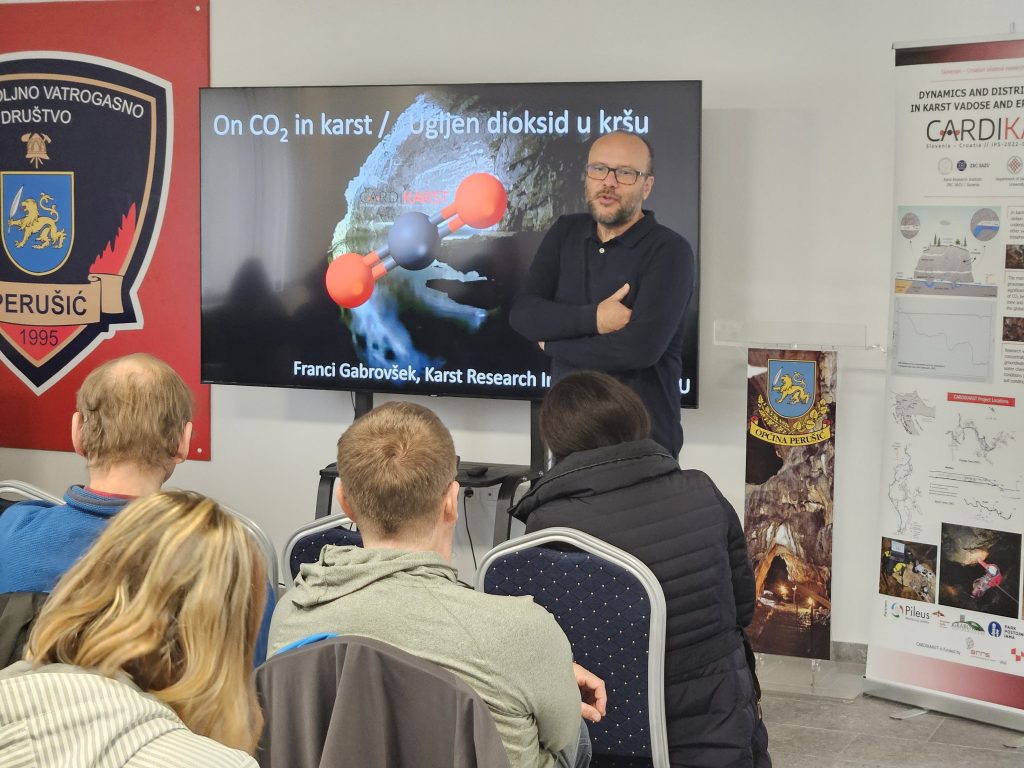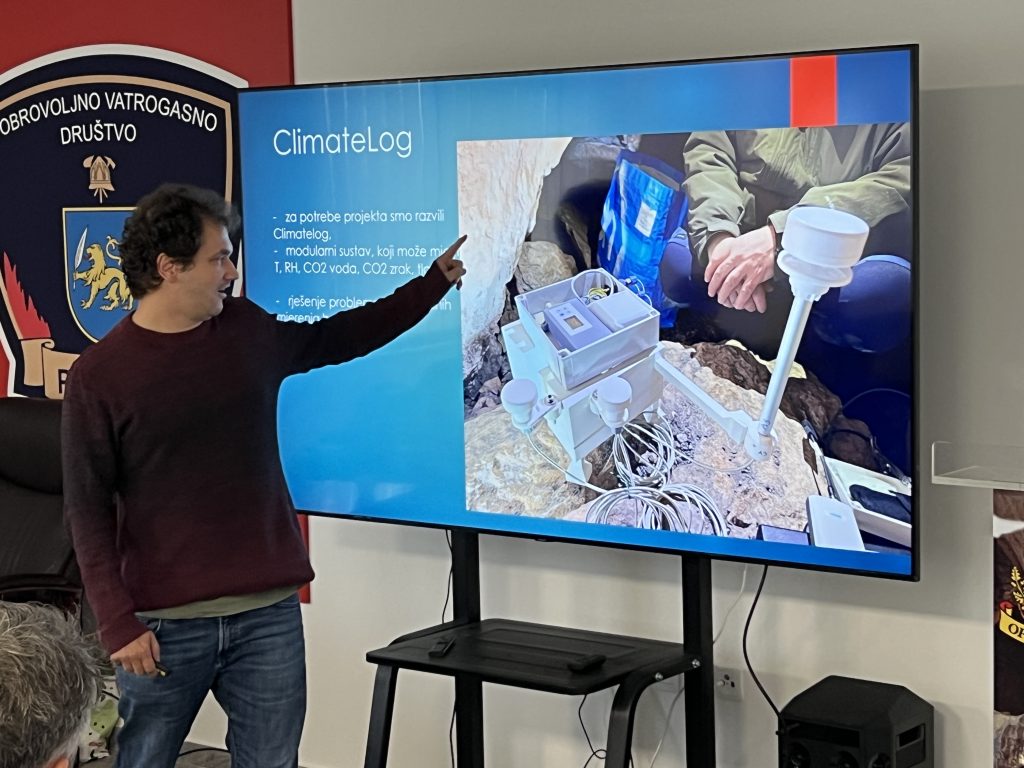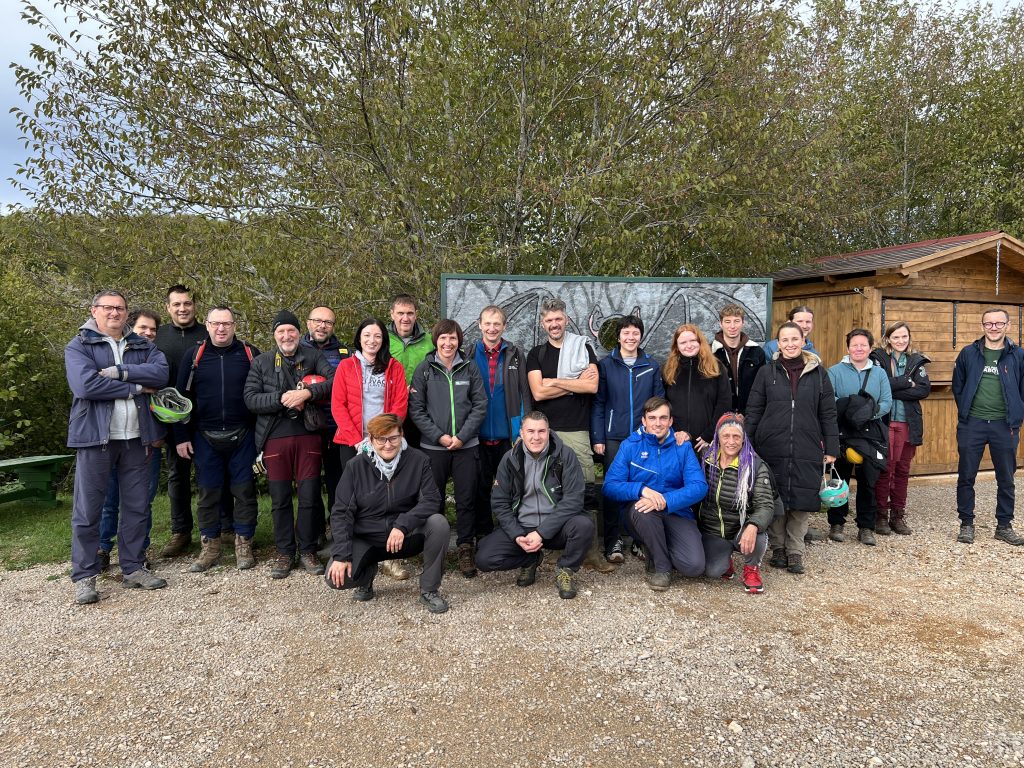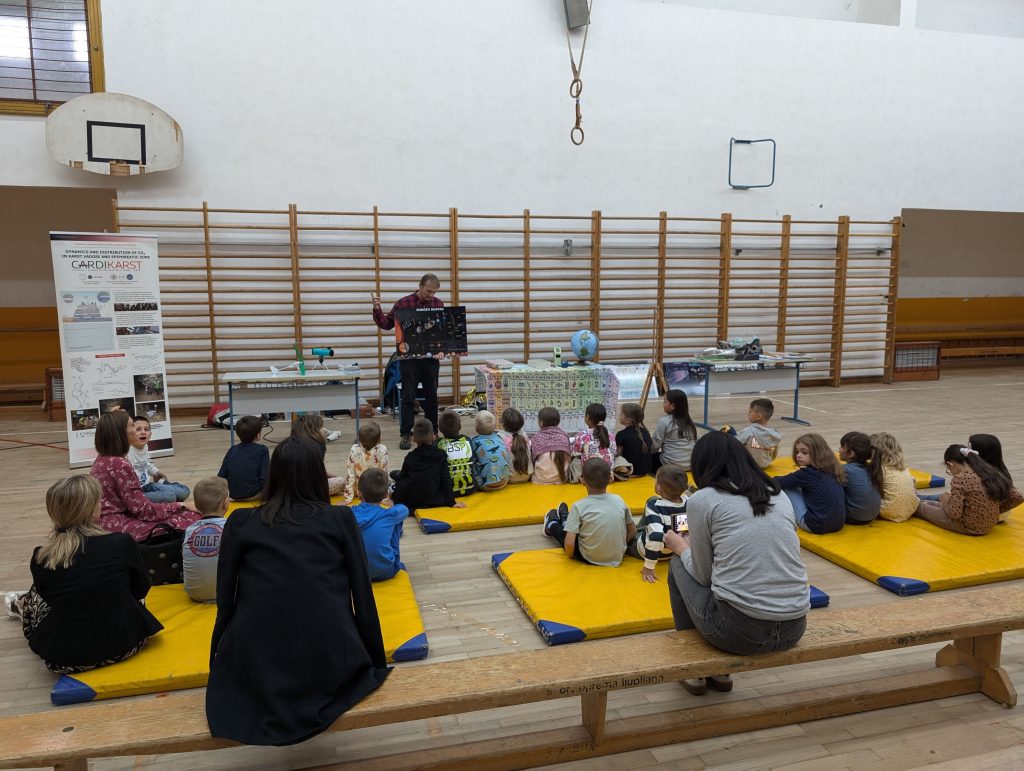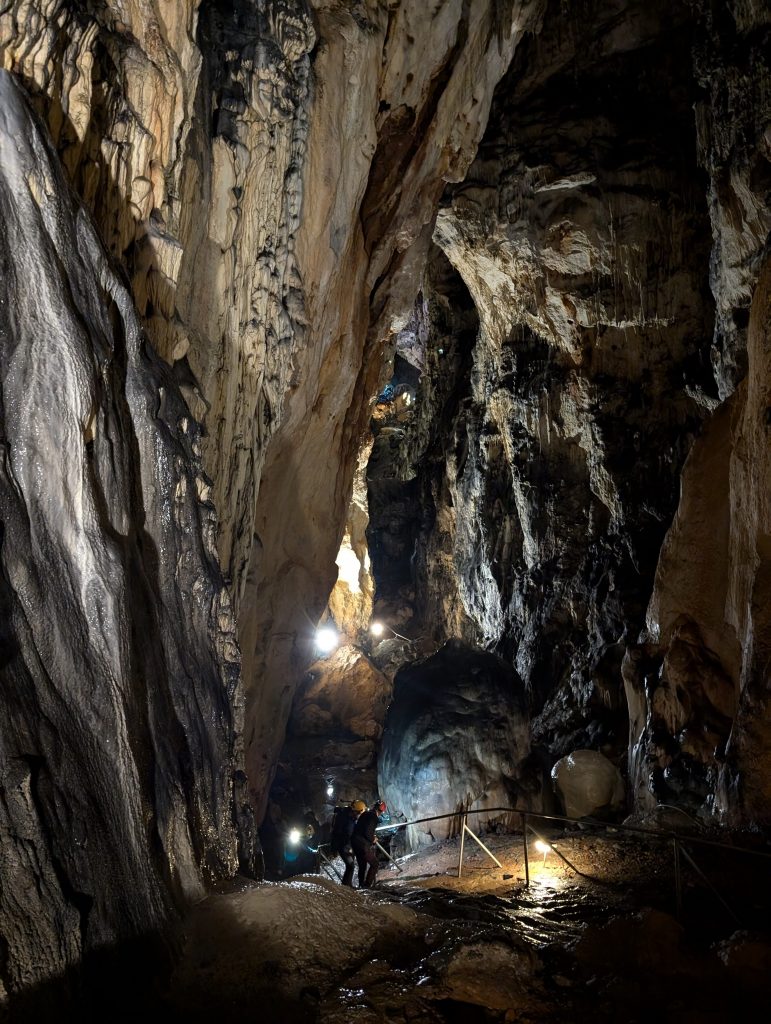The workshop was held for professionals in nature conservation, researchers, and students interested on the topic of monitoring carbon dioxide concentration in cave systems. The workshop was organized by the Department of Geography (Faculty of Science//University of Zagreb), and the Public Institution Pećinski Park Grabovača. This workshop is part of the joint Slovenian-Croatian project CARDIKARST (IPS-2022-02) which aims to monitor the dynamics and distribution of carbon dioxide in karst areas.
The workshop covered various topics, including identifying key features to be monitored, selecting data collection methodologies, monitoring dynamics, and choosing locations both inside and outside cave systems to gather representative data for scientific analyses, quality management, and ensuring high-quality ecosystem services.
The lecturers were: Academician Prof. Dr. Franci Gabrovšek (Karst Research Institute ZRC SAZU, Slovenia), Dr. Aurel Persoiu (“Emil Racovita” Institute of Speleology, Romania), Dr. Christos Pennos (School of Geology, Department of Physical Geography, Aristotle University, Greece), Prof. Dr. Nenad Buzjak (Dept. of Geography, Faculty of Science, University of Zagreb & “Emil Racovita” Institute of Speleology), Associate Prof. Dalibor Paar (Dept. of Physics, Faculty of Science, University of Zagreb), Prof. Dr. Neven Bočić (Dept. of Geography, Faculty of Science, University of Zagreb), and Iztok Miklavčič (Pileus, Slovenia). The list of lectures is available here.
After the lectures, participants visited Samograd Cave to observe various measuring instruments and discuss optimal strategies for both spot and continuous monitoring.
As part of this event, a workshop titled “The Role of Carbon Dioxide in Karst and Climate Change” was held for elementary school children in Perušić. Through examples from the CARDIKARST project, students learned how a scientific research project works and how scientists seek answers to important questions.
